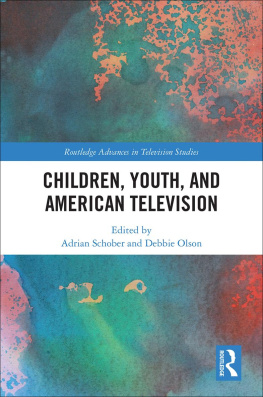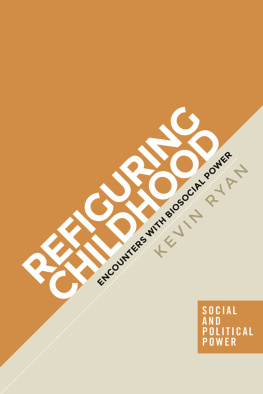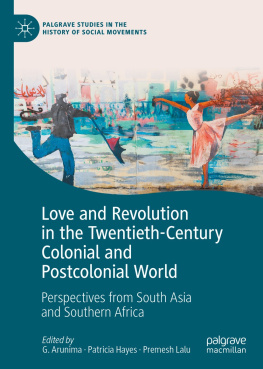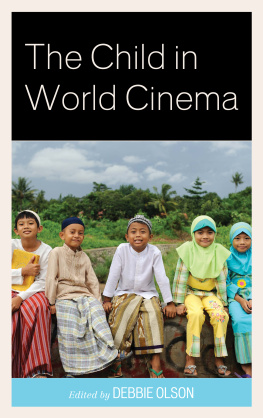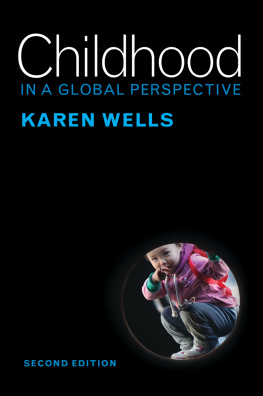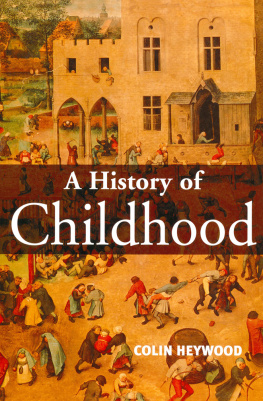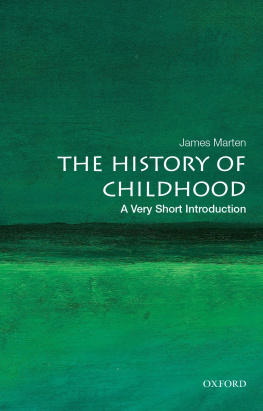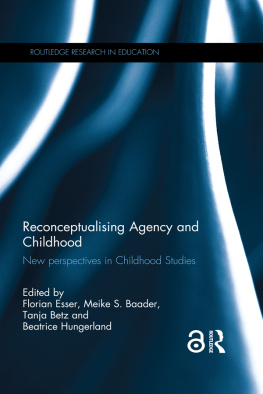Atlantic Childhoods in Global Contexts
Atlantic Childhoods in Global Contexts explores childhood and youth in the Global South. The term childhood often conjures images of innocence, vulnerability and the need for protection, but this book suggests that, in colonial contexts, these images need to be reexamined. In fact, as the articles in this collection demonstrate, deviance, culpability, and a presumed autonomy were the more popular notions of childhood in the colonial context. These notions were held by the various actors in the colonial drama, not only colonial officials but interestingly enough often by the colonized people themselves. Furthermore, traditional notions of childhood as a period of total dependency are challenged in this collection, as the various authors explore the ways in which children were pro-active agents who shaped notions of childhood and therefore our understanding of the history of childhood.
This collection provides in-depth analysis and offers new perspectives on how children were imagined and constructed (both legally and informally) in the colonial context. The contributions cover a broad geographic range that spans the Caribbean, Latin America, Africa, and India. Each of the authors explore the ways in which the interplay of Atlantic and global influences shaped young peoples experiences, as well as the discourses that were used to articulate concerns about youth. The themes explored in this collection include the pathologization of childhood, juvenile delinquency, cultural creativity, and the use of child labor. The book ends with an interview with Sara Austin of World Vision Canada who discusses the ways in which the UN Convention on the Rights of the Child neglected to include the voices of children until 2014.
This book was originally published as a special issue of Atlantic Studies.
Audra A. Diptee is an Associate Professor in the Department of History at Carleton University. She is the author of From Africa to Jamaica: The Making of an Atlantic Slave Society, 17761807 (2010) and various other works on childhood in the Global South, memory, humanitarianism, race relations, and critical applied history. She is the Managing Director of the non-profit organization the History Watch Project.
David V. Trotman is the author of Crime in Trinidad: Confl ict and Control in a Plantation Society and various articles on Yoruba religion in the Diaspora, popular culture, and public history and memory. He is the former Master of Founders College and Associate Director of the Harriet Tubman Institute at York University.
Atlantic Childhoods in Global Contexts
Edited by
Audra A. Diptee and David V. Trotman
First published 2016
by Routledge
2 Park Square, Milton Park, Abingdon, Oxon, OX14 4RN, UK
and by Routledge
711 Third Avenue, New York, NY 10017, USA
Routledge is an imprint of the Taylor & Francis Group, an informa business
2016 Taylor & Francis
All rights reserved. No part of this book may be reprinted or reproduced or utilised in any form or by any electronic, mechanical, or other means, now known or hereafter invented, including photocopying and recording, or in any information storage or retrieval system, without permission in writing from the publishers.
Trademark notice: Product or corporate names may be trademarks or registered trademarks, and are used only for identification and explanation without intent to infringe.
British Library Cataloguing in Publication Data
A catalogue record for this book is available from the British Library
ISBN 13: 978-1-138-65835-6
Typeset in Times
by RefineCatch Limited, Bungay, Suffolk
Publishers Note
The publisher accepts responsibility for any inconsistencies that may have arisen during the conversion of this book from journal articles to book chapters, namely the possible inclusion of journal terminology.
Disclaimer
Every effort has been made to contact copyright holders for their permission to reprint material in this book. The publishers would be grateful to hear from any copyright holder who is not here acknowledged and will undertake to rectify any errors or omissions in future editions of this book.
Contents
Audra A. Diptee and David V. Trotman
Danielle Kinsey
Erin Bell
Lara Putnam
Cecilia A. Green
Catherine Koonar
Audra A. Diptee
The chapters in this book were originally published in Atlantic Studies, volume 11, issue 4 (December 2014). When citing this material, please use the original page numbering for each article, as follows:
Atlantic childhood and youth in global context: refl ections on the Global South
Audra A. Diptee and David V. Trotman
Atlantic Studies, volume 11, issue 4 (December 2014) pp. 437448
Atlantic World mining, child labor, and the transnational construction of childhood in Imperial Britain in the mid-nineteenth century
Danielle Kinsey
Atlantic Studies, volume 11, issue 4 (December 2014) pp. 449472
A most horrifying maturity in crime: age, gender and juvenile delinquency in colonial Kenya during the Mau Mau Uprising
Erin Bell
Atlantic Studies, volume 11, issue 4 (December 2014) pp. 473490
Global child-saving, transatlantic maternalism, and the pathologization of Caribbean childhood, 19301940s
Lara Putnam
Atlantic Studies, volume 11, issue 4 (December 2014) pp. 491514
The 19381939 Moyne Commission in Barbados: investigating the status of children
Cecilia A. Green
Atlantic Studies, volume 11, issue 4 (December 2014) pp. 515535
Using child labor to save souls: the Basel Mission in colonial Ghana, 18551900
Catherine Koonar
Atlantic Studies, volume 11, issue 4 (December 2014) pp. 536554
The UN Convention on the Rights of the Child 25 years later: Sara Austin refl ects on the journey
Audra A. Diptee
Atlantic Studies, volume 11, issue 4 (December 2014) pp. 555564
For any permission-related enquiries please visit:
http://www.tandfonline.com/page/help/permissions
Audra A. Diptee and David V. Trotman
This article is an introduction to the special issue dedicated to exploring the ways in which childhood and youth have been shaped by Atlantic and global dynamics. It explores some of the methodological and theoretical challenges of writing a history of childhood and youth in the Global South. The authors suggest that current theories which address the experiences of young people do not adequately consider the historical specificities of childhood and youth in colonial contexts. In particular, they maintain that there are at least four distinctive factors that shaped young peoples experiences. These include the racialization of childhood and youth, attempts to reshape the boundaries of childhood and youth to reflect the priorities of colonial states, the existence of colonial narratives which articulated childhood and youth in terms of deviance and pathology, and the presence of non-Western notions about young people which acted in opposition to colonial impositions despite the severity of the power imbalance. Furthermore, the article argues that while there may be a need to develop a theory that works for children in the Global South, historians should by no means abandon empiricism or develop an over reliance on generalizations that do not adequately consider historical context. Finally, the authors suggest that historians need to rely on nontraditional sources and develop new narratives for articulating the experiences of young people.


